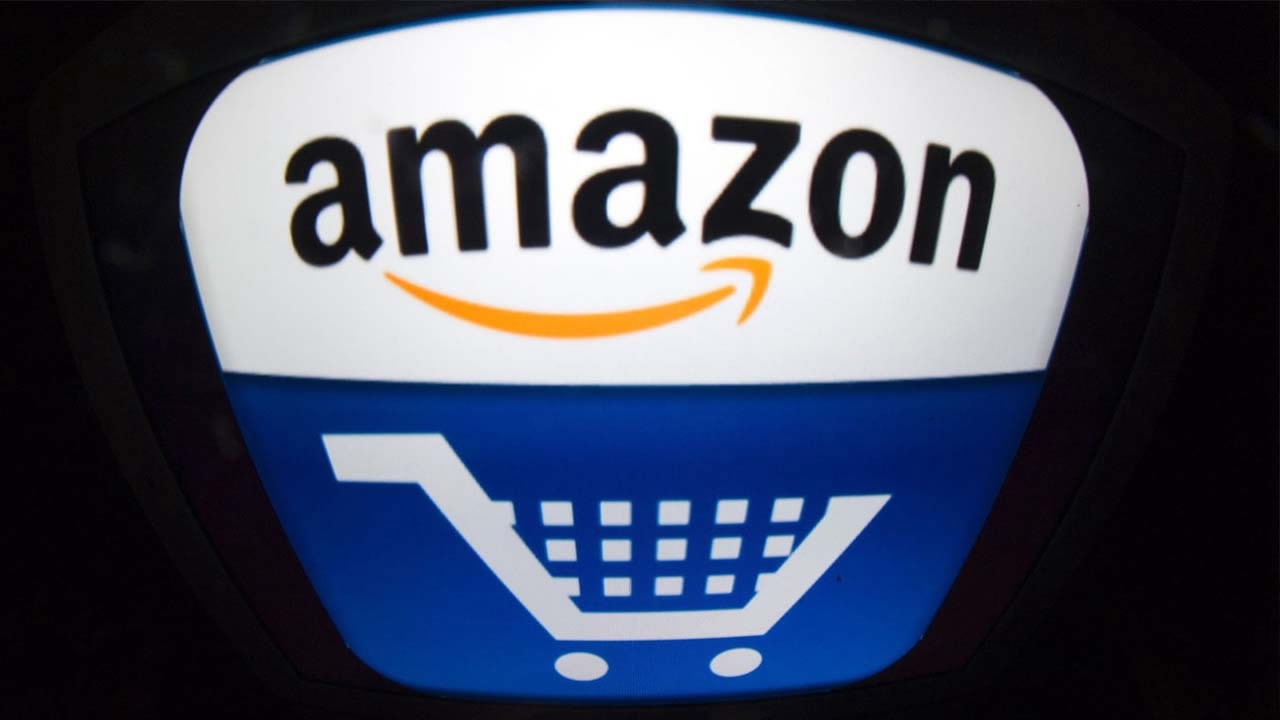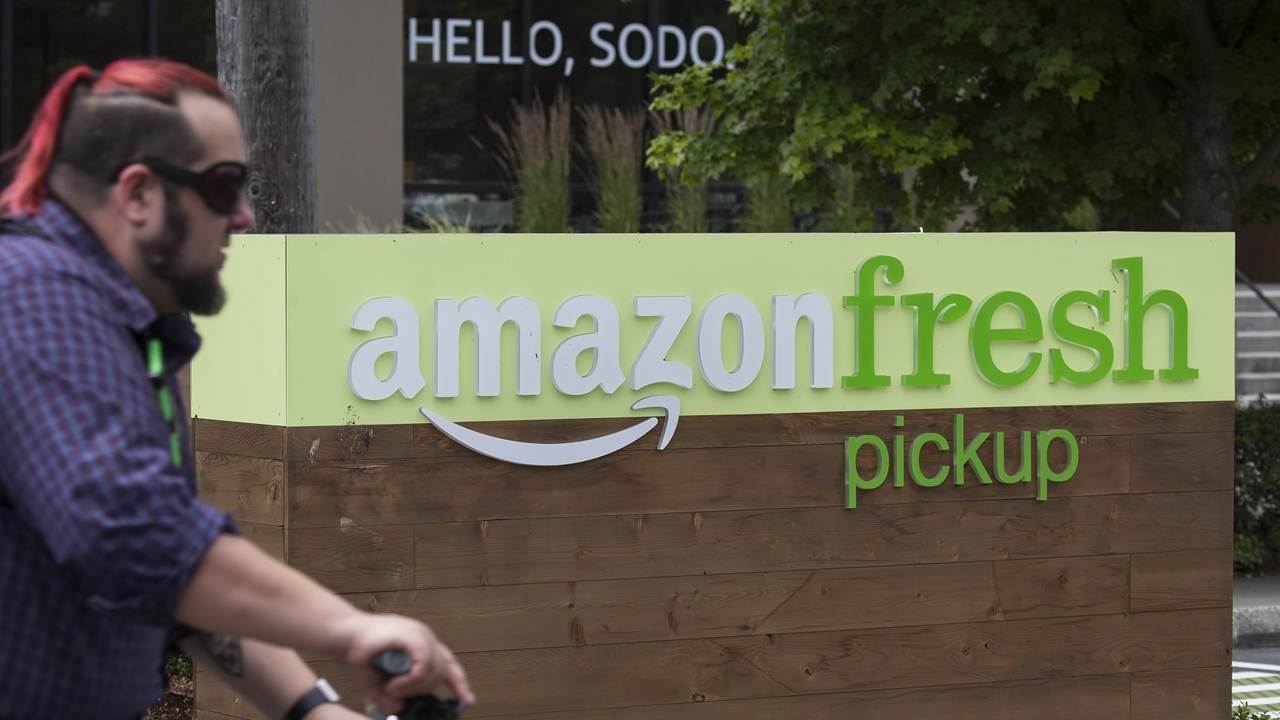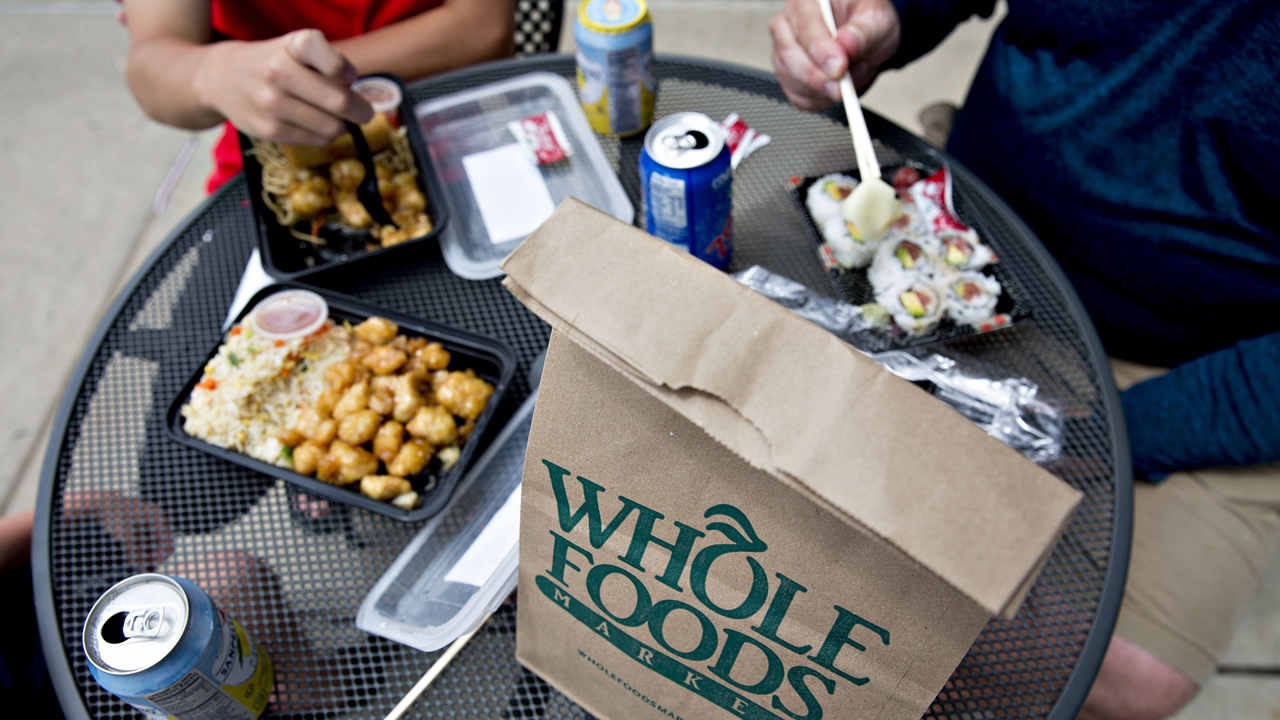
Business
18:32, 19-Jul-2017
E-commerce players step into grocery sector

By CGTN’s Nisha Patel
E-commerce giant Amazon has gone on a shopping spree, buying high-end grocery chain Whole Foods Market for 13.7 billion US dollars.
Analysts said the purchase was a serious disruption to the 700 billion US dollars US grocery sector and a signal that the lines dividing e-commerce from traditional retail are quickly disappearing.
It is believed that Amazon wants to be the first port of call for customers to buy anything they need, be it books, clothes or, now, groceries.
The company had previously experimented with Amazon Fresh, an online grocery service, but realized it needed a physical network to make it work. Buying Whole Foods could help the company further that goal.

A man rides a bicycle near an Amazon Fresh Pickup location in Seattle, Washington, US, June 16, 2017. /VCG Photo
A man rides a bicycle near an Amazon Fresh Pickup location in Seattle, Washington, US, June 16, 2017. /VCG Photo
“In fact, for people who buy their groceries online, 75 percent of their dollars still go to brick and mortar stores for groceries. So if Amazon wants to grow through food and beverage, the path to growth for them is through brick and mortar,” said Darren Seifer, food and beverage analyst at the NPD group.
Since Whole Foods has more than 460 brick-and-mortar stores across the US, the deal could also help Amazon increase the speed and delivery of goods to customers.
But Amazon's quest for grocery dominance won't be easy. Analysts are concerned that how to get consumers to trust the online shop to pick out fresh foods for them may be the biggest challenge.
Meanwhile, Amazon has to solve “complexity of distribution” associated with the deal.

Customers eat lunch outside a Whole Foods Market Inc. located in Naperville, Illinois, US, on June 16, 2017. /VCG Photo
Customers eat lunch outside a Whole Foods Market Inc. located in Naperville, Illinois, US, on June 16, 2017. /VCG Photo
Since the deal was announced, investors have sold off retail stocks like Walmart, Target, Costco and Kroger, wiping out at least 35 billion US dollars in market capitalization.
The second-biggest US supermarket chain, Albertson's, was holding off on going public while meal delivery startup Blue Apron's IPO has fallen flat.
“Valuations of many of these grocery stores have come down considerably due in part because of this competitive concern from Amazon. Value investors now as well as private equity shops on the financial side could perhaps justify taking many of these companies private to try to reinvigorate their business models,” said Chad Morganlander, the senior portfolio manager at Washington Crossing.
Related stories:

SITEMAP
Copyright © 2018 CGTN. Beijing ICP prepared NO.16065310-3
Copyright © 2018 CGTN. Beijing ICP prepared NO.16065310-3